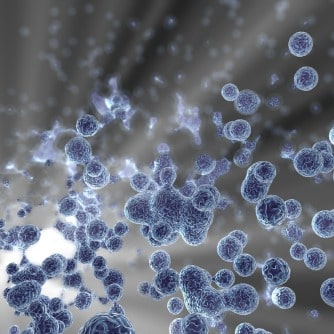Every home is teeming with millions of bacteria, and there is mounting evidence to suggest that these microscopic communities play a role in human health and disease treatment and transmission. Jack Gilbert, from the US Department of Energy/Argonne National Laboratory (Illinois, USA), and colleagues report results of the Home Microbiome Project. which followed seven families (18 people, 3 dogs and 1 cat), over the course of six weeks. The participants in the study swabbed their hands, feet and noses daily to collect a sample of the microbial populations living in and on them. They also sampled surfaces in the house, including doorknobs, light switches, floors and countertops. The samples were sent to Argonne National Laboratory, where researchers performed DNA analysis to characterize the different species of microbes in each sample. They found that people substantially affected the microbial communities in a house. Regular physical contact between individuals also mattered — in one home where two of the three occupants were in a relationship with one another, the couple shared many more microbes. Married couples and their young children also shared most of their microbial community. Adding pets changed the makeup as well, with more plant and soil bacteria in houses with indoor-outdoor dogs or cats. Noting a “rapid colonization by the family’s microbiota,” the study suggests a complicated interaction exists between humans and the microbes that live on and around us.
Implications of Microbes on Human Health
Simon Lax, Daniel P. Smith, Jarrad Hampton-Marcell, Sarah M. Owens, Kim M. Handley, Jack A. Gilbert, et al. “Longitudinal analysis of microbial interaction between humans and the indoor environment.” Science; 29 August 2014: 1048-1052.
RELATED ARTICLES




